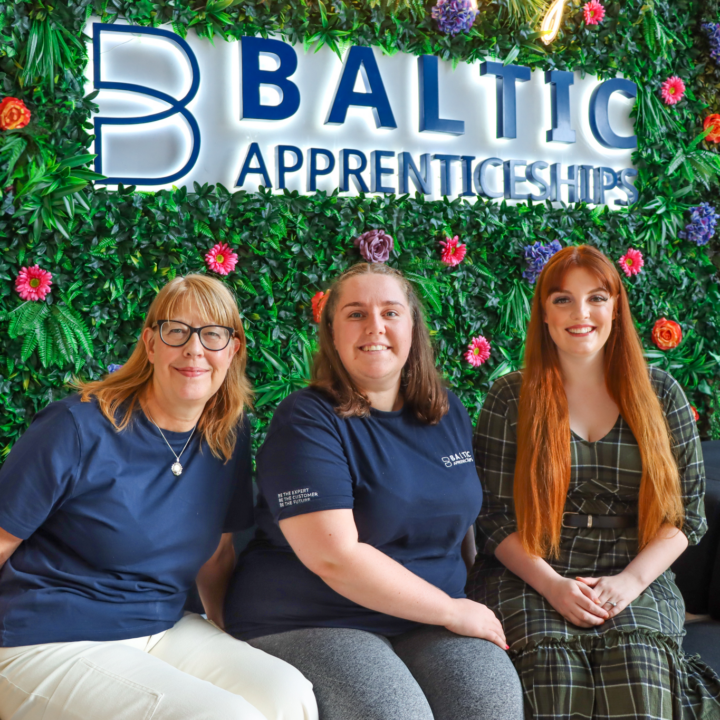Respecting and using preferred names in education is not a matter of courtesy – it’s a fundamental part of an inclusive learning environment. Every learner deserves the dignity of being addressed by the name that resonates with their true identity.
With that being said, as an apprenticeship training provider, we follow the ESFA apprenticeship compliance and funding rules, which require us to maintain our records using learners’ legal names and genders.
However, last year we realised that this approach didn’t always allow our learners to express their true selves. This approach ostracised learners who had not yet changed their name legally to reflect their true identity.
It is easy to overlook the systems and processes we follow every day; we can forget that while processes might be inclusive for some – they may not be inclusive for everyone. It wasn’t until one of our learners, who is transgender, reached out to their Coach regarding our automated emails that we truly understood the impact of our (lack of) internal processes surrounding preferred names.

Pictured left to right: Safeguarding and Support Manager, Debbie Park, Senior Digital Marketing Coach, Olivia Anderson, and Safeguarding and Support Officer, Laura Jameson.
The learner’s Digital Marketing Coach, Olivia Anderson, said: “Early in the learner’s journey, they confided in me about identifying as non-binary, and later, they embraced their transgender identity, expressing a desire to be addressed by their preferred name rather than their legal one.
“While it was easy to accommodate this request in our conversations, we discovered an administrative issue whereby our automated email communications were still using their legal name.
“Given my longstanding commitment as an advocate and ally within the LGBTQ+ community, I was well aware of the potential harm ‘deadnaming’ could inflict, especially on a young individual navigating the complexities of their gender identity.
“We as a team at Baltic got to work immediately to rectify this ensuring that the learner’s preferred name was consistently used throughout their educational journey, not just in verbal exchanges with me. This marked a significant stride for Baltic, aligning with our commitment to fostering greater gender inclusivity while remaining compliant with our operational standards.”
As a company, we had always respected and used preferred names and pronouns, but we did not have a formal procedure in place. We held our hands up, and our Safeguarding team worked meticulously to create a formal Preferred Name procedure for the company to follow to ensure we were providing an inclusive learning environment.
Now, on our apprentice management system, our ‘preferred name’ field overrides the legal name field. This means that anyone who accesses the learners’ account can clearly see their preferred name, and all communications sent to the learner will use their preferred name.
We circulated a communication to our staff to inform them of this new process. Surprisingly, it turned out to be a quick and easy fix to implement, but its impact was considerable. This simple adjustment allowed us to have more meaningful conversations with our learners about their preferred pronouns and their preferred names.
Olivia Anderson said: “Witnessing the profoundly positive impact this change had on the learner inspired me to explore ways to enhance inclusivity within our End Point Assessment (EPA) process.
“From this I engaged with the End Point Assessment Organisation, securing the relevant documentation to address learners by their preferred name during interviews, even if they hadn’t legally changed their name!
“When the learner was told of these changes they expressed their heartfelt gratitude. This moment was a great win for me in my career and as an ally to the LGBTQ+ community, affirming that mine and the team’s actions were paving the way for how we support and address non-binary and transgender learners within their apprenticeships for years to come.”
The learner who initially raised this issue with us successfully completed their Level 3 Digital Marketing apprenticeship in July. Using someone’s preferred name is paramount to them feeling included and, most importantly, respected. The change in the process meant a lot to them, and it was heartwarming to see them feel acknowledged.
This process change didn’t just benefit one learner; it also ensured that we could use preferred names in all communications for both current and future apprentices. It was a small change with a big impact, embodying our commitment to creating a more inclusive and welcoming environment for all.